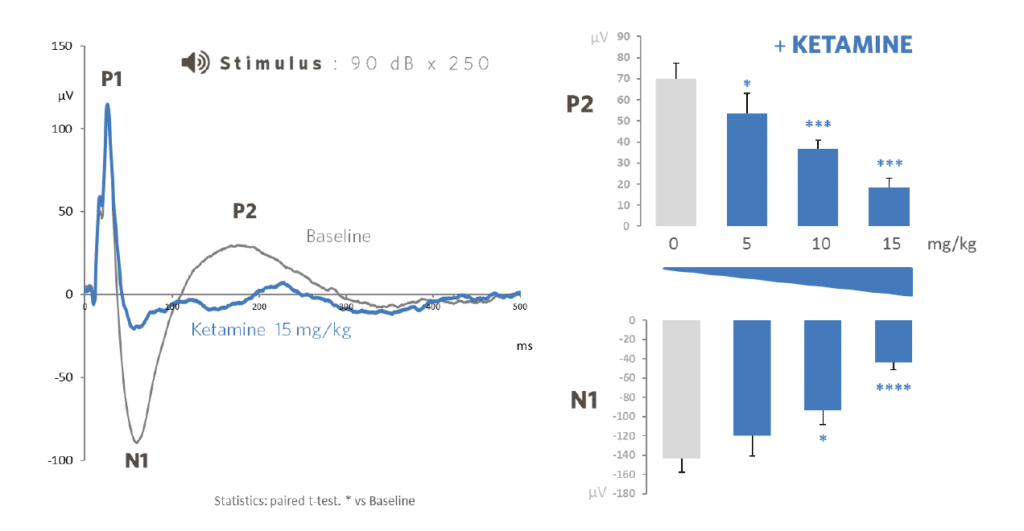What are Auditory Evoked Event-Related Potentials (AERP)?
Home » Resources / Blog / Auditory-Event-Related Potentials (ERP)
Auditory Event-Related Potentials (AERPs) are widely used EEG biomarkers that measure how the brain responds to auditory stimulation. Because they provide insights into sensory information processing and its alterations in neurological and psychiatric disorders such as schizophrenia, AERPs play a critical role in both clinical research and drug discovery. In this article, we explain what AERPs are, how they differ from ASSRs, and why they are a powerful translational tool from preclinical models to human patients.
Definition of Event-Related Potentials (ERP)
Event-related potentials (ERP) are defined as the modification of the electrical activity of the nervous system in response to an external stimulation. ERPs are useful to monitor how the brain processes new sensory information. Defects in information processing like in schizophrenia can be evaluated with ERPs.
AERPs and sensory information processing
In rodents, EEG responses evoked by auditory stimulation can be recorded in various brain areas and underlie the integration and processing of sensory information which are altered in a large number of neurological and psychiatric disorders.
Types of Auditory Evoked Responses
Widely adopted in patients, we can distinguish two main types of auditory evoked responses:
- the auditory evoked related potentials (AERP)
- and the auditory steady state response (ASSR)
Characteristics of AERPs
AERPs are composed of successive positive and negative deflections, which differ from their latencies and amplitudes and are well conserved throughout the evolution.
These features make AERPs readouts easily translatable from preclinical models of psychiatric disorders to human patients, and enable the objective measure of the impact of drug candidates on information processing by the brain in healthy or relevant models of psychiatric or cognitive disorders (transgenic models, pharmaco-induced models or surgical models).

Applications of AERP protocols in research
ERP protocols can be very useful to test a novel mecanism of action of a compound, measure how the brain integrates and processes new information and get the phenotype of an experimental animal model of psychiatric disorder (Ketamine modelisation and NMDA hypofunction in schizophrenia for example).
